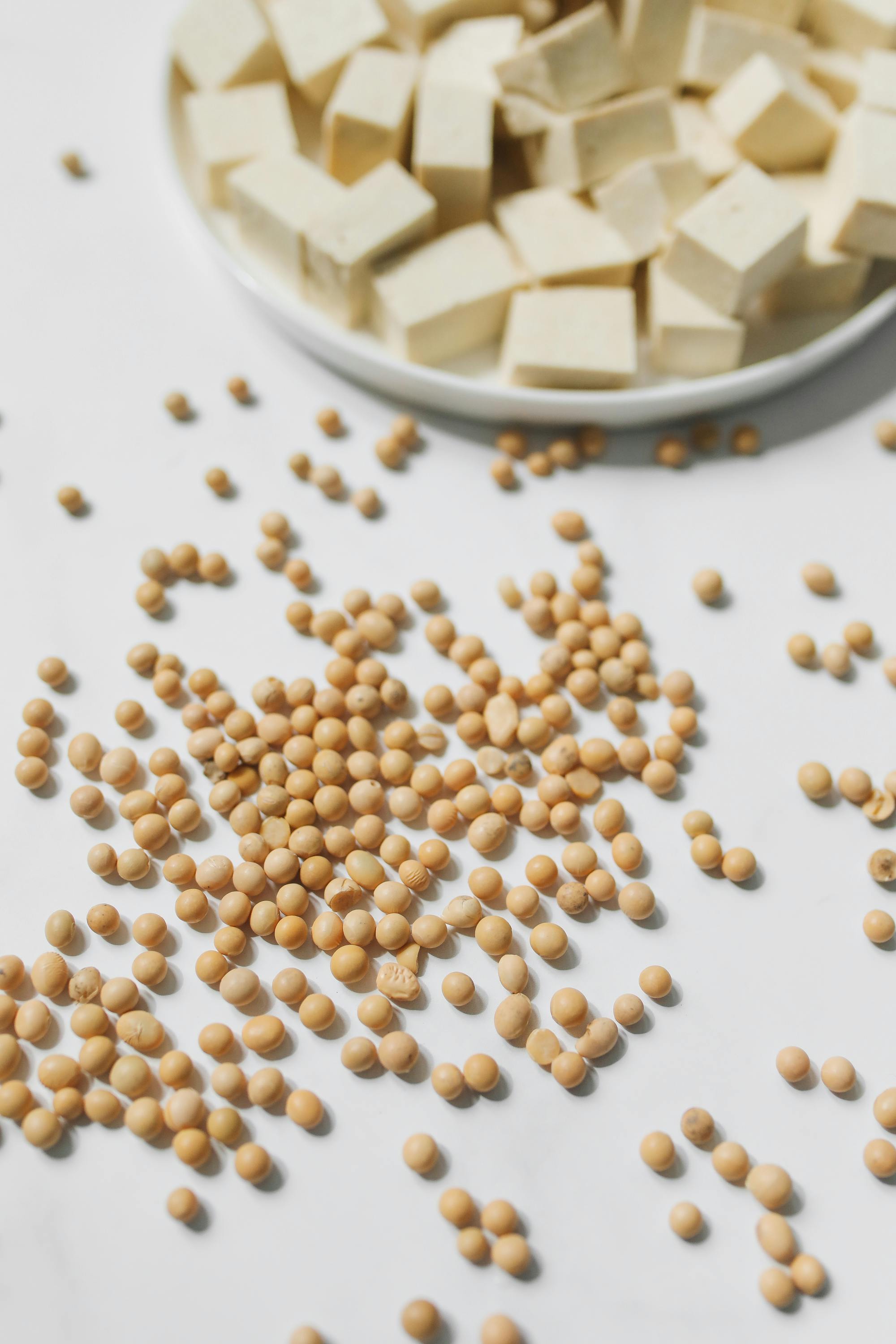
Apply Now


Top 10 Ways to Optimize Your 2000 Calorie Diet in 2025
A 2000 calorie diet can be a powerful framework for individuals looking to balance their weight management, body composition, and overall health. Whether you're aiming for weight loss, muscle gain, or simply maintaining a healthy lifestyle, understanding how to optimize your daily caloric intake is crucial. With a focus on nutritional balance and portion control, this article will guide you through beneficial strategies to enhance your dietary choices. As societal eating habits evolve, the quality of caloric intake takes precedence. In 2025, optimizing your 2000 calorie diet means incorporating diverse food choices, mindful eating practices, and evidence-based meal planning. This roadmap will explore effective methods to ensure your meals are not only aligned with your fitness goals but also provide essential nutrients to fuel your daily activities. Here we delve into practical steps that can help you achieve a healthy diet while enjoying the process of reaching your health and fitness milestones.Understand Your Nutritional Needs
To start optimizing your 2000 calorie diet, it’s essential to understand your unique daily energy needs. Nutritional balance involves knowing how to distribute your calories across macronutrients: carbohydrates, proteins, and fats. The typical macronutrient distribution for a 2000 calorie diet is approximately 45-65% carbohydrates, 10-35% protein, and 20-35% fats. Calculating your caloric needs requires accounting for factors such as age, weight, height, sex, and physical activity level. By adjusting these variables, you can determine the optimal calories that cater to your personal lifestyle choices. A tailored nutrition plan is integral for maintaining your fitness goals, whether it's enhancing energy expenditure for workouts or managing a caloric deficit for weight loss. Additionally, consulting with a registered dietitian can provide insights into your specific dietary requirements. They can assist in establishing a nutrition framework that guides you toward balanced nutrition. You can also explore more about dietary guidelines tailored to your carbohydrates importance and protein sources for a well-rounded approach.Incorporate Meal Planning Strategies
Meal planning serves as a cornerstone in maintaining a balanced diet by streamlining healthy food choices throughout your week. Developing an organized meal prep routine enhances accountability and helps avoid impulsive eating patterns. Focus on varying the food composition in your meals to prevent monotony, which can lead to undesirable snacking habits or dietary boredom. When planning meals, emphasize nutrient density over caloric content. Opt for whole foods and minimize processed items, ensuring that your snacks and mains provide the most nutritional value possible. For example, integrating high-fiber foods such as legumes, whole grains, fruits, and vegetables can promote feelings of fullness while also supporting digestive health. While meal frequency plays a role in maintaining energy levels and metabolism, it's not a one-size-fits-all approach. Customize your meal timing according to your eating habits, lifestyle changes, and personal preference. For some, several smaller meals throughout the day work effectively, while others might prefer sticking with three balanced meals.Practice Portion Control
Portion control remains essential for managing your daily caloric intake. Being mindful of portion sizes can prevent overeating and maintain a caloric balance suited to your health goals. Techniques such as using smaller plates, serving controlled amounts, and understanding visual cues for portion sizes can make a significant difference. Educate yourself on standard portion sizes for various food groups using resources like the food pyramid. Staying familiar with serving size recommendations minimizes the chances of calorie surplus—a frequent downfall in maintaining weight. Additionally, measuring out ingredients during meal prep can help reinforce proper food portioning and contribute to sustainable eating habits. Choosing the right snacks is crucial to fostering healthy eating habits throughout the day. In this aspect, it's vital to select nutrient-rich snacks that align with your goals. Instead of reaching for typical high-calorie snack options, explore alternatives rich in protein or healthy fats to maintain satiety and energy levels.Focus on Macronutrient Ratios
Understanding the importance of macronutrient ratios is essential for optimizing a 2000 calorie diet. Each macronutrient plays a unique role in energy production, muscle recovery, and overall health. Consequently, determining how many grams of each macronutrient you should include in your diet is vital. For instance, if your goal includes muscle gain, a higher protein intake can support recovery and help build lean muscle mass. Aim for a balance that caters to your fitness and health goals while ensuring you're meeting your energy needs. Additionally, carbohydrates are pivotal during exercise regimes for fueling sustained physical activity. Integrating a diverse array of food choices will enrich your meals with various micronutrients essential for optimal metabolic health. Consider sources such as colorful fruits and vegetables, lean meats, healthy oils, and whole grains to maximize nutrient density and enhance health benefits.Track Your Food Choices
Food tracking is another method that plays an instrumental role in managing a 2000 calorie diet. By being conscious of what you consume, you can better recognize patterns in your eating habits and make informed dietary decisions. Utilizing apps or journals for calorie counting can provide insights into your nutritional intake and assist in meal composition. Beyond just counting calories, focus on diversifying the nutritional value of your diet. Some might find value in tracking micronutrient intake alongside macronutrients, ensuring they meet their dietary requirements holistically. This can enhance wellness initiatives and foster a healthier relationship with food. Monitor your hydration levels as part of your food tracking strategy. Consuming adequate water aids digestion and contributes to metabolic processes, assisting in weight management and overall health.Implement Mindful Eating Techniques
Emphasizing mindfulness in eating can further support healthy habits while optimizing your 2000 calorie intake. Mindful eating techniques encourage awareness of hunger cues and satiety signaling, enabling you to foster a respectful relationship with food. Slow eating can help improve digestion and allow your body the necessary time to signal fullness, thus reducing the risk of overeating. Focus on the meal experience by enjoying flavors and textures while minimizing distractions. This cultivates a more fulfilling dining experience that aligns with a healthy lifestyle. Incorporate mindful practices in your meal prep. Prioritize the act of cooking and savoring your meals rather than resorting to quick fixes, which can sometimes be less healthful. Engaging in cooking methods that emphasize health, like grilling or steaming, can elevate the caloric quality of your meals.Maximize Your Macronutrient Composition
The **quality of your calories** matters. Understanding macronutrients' importance will help you make conscious food choices that enhance energy levels and overall well-being. Focus on muscle-building protein sources, wholesome carbohydrates, and healthy fats to optimize your daily intake. Looking for effective dietary strategies? Prioritize meal variety—mixing up your food choices will keep meal times interesting and nurture dietary diversity. This approach can also prevent emotional eating and promote a healthier mindset towards food. Consider speaking to a nutrition-focused personal trainer or wellness coach to gain insights on how best to implement these strategies effectively to meet your individual health goals.Adopt Sustainable Eating Practices
Sustainable eating begins with understanding the environmental impact of food choices while also considering personal health. By focusing on whole foods and minimizing processed options, you promote not only your well-being but also the sustainability of food systems. Make eco-conscious decisions by sourcing ingredients locally when possible and exploring plant-based options that carry lower carbon footprints. Additionally, consider the emotional impact of food choices on your lifestyle; selecting healthful meals that resonate with your values contributes positively to overall wellness. Through enhanced **nutritional knowledge**, you’ll be equipped to make better food choices in syncing with your health optimization strategies. Understanding expanding dietary needs as you progress will position you favorably in the journey toward achieving your daily caloric intake goals.Evaluate Progress and Adjust Goals
Regularly evaluating your progress can ensure that you're on the right path toward meeting your 2000 calorie diet goals. Tracking your energy levels, body composition, and exercise regimen will provide valuable insights into your overall health journey. Don’t hesitate to make adjustments if your current plan doesn’t align with your evolving fitness needs. The relationship between calories and exercise is dynamic; therefore, tweaking your diet as your goals shift is a vital component of maintaining health balance. Implement feedback mechanisms—this can be through professional consultations or self-reflection—to continuously refine your dietary habits, meal prep, and overall wellness strategy. As you focus on sustainable and impactful changes to your eating patterns, you’ll establish lasting healthy lifestyle habits that promote vitality and well-being.
